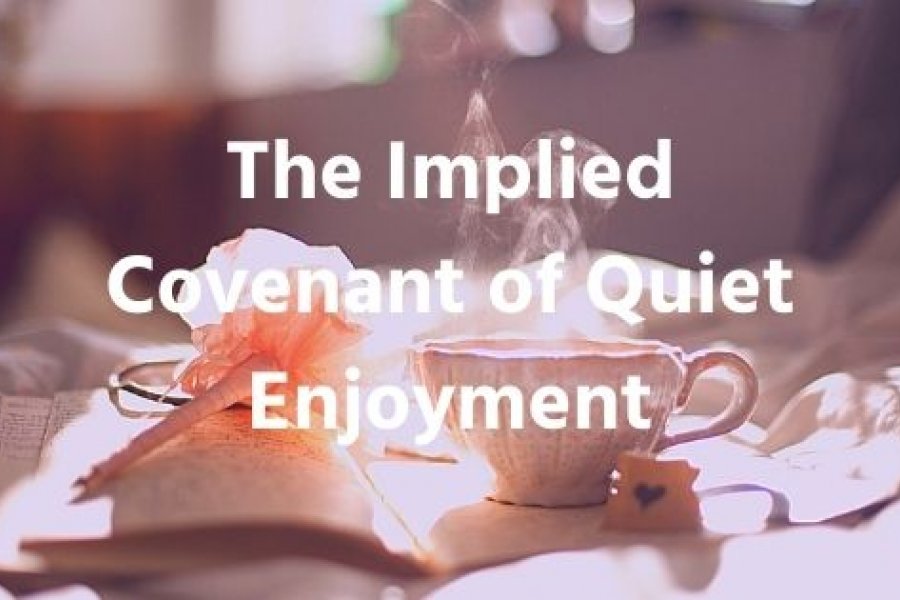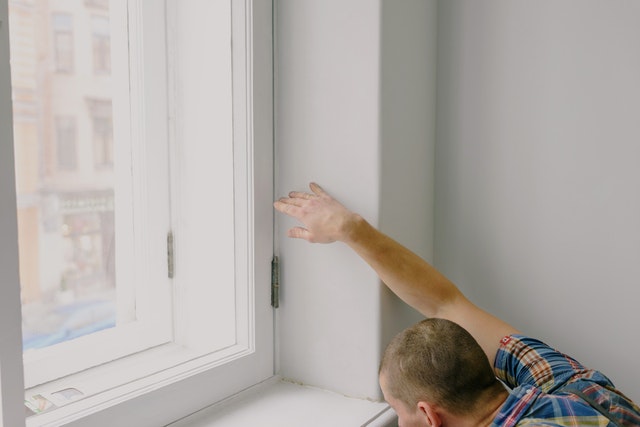
As a landlord, your tenants have a right to the quiet enjoyment of their rented premises. Basically, this means that even as a landlord, you cannot barge in on your tenants as you like. If you do, it could be considered landlord harassment and you may face legal action.
This guide will go over the basics of the implied covenant of quiet enjoyment, as well as provide examples of violations so that you can be better prepared when drafting your lease agreements.
What does "Implied Covenant" mean?
Whether verbal or written, an implied covenant is assumed to be true by both parties entering a contract. In other words, it doesn’t have to be specifically stated in the lease terms in order to be valid. It is a frequent feature of lease agreements, and falls under North Carolina landlord-tenant laws.
What does "Quiet Enjoyment" mean?
This is a covenant that promises that you’ll let your tenant possess the property in peace, without any disturbance.
Every lease or rental agreement guarantees a tenant the following rights:
- Peace & Quiet: This includes freedom from recurring and unreasonable disturbances from both the landlord and the neighbors.
- Privacy: A tenant has a right to ‘reasonable peace, comfort and privacy’ in their use of the rented premises. As a landlord, you must not interfere, or permit or cause someone else to interfere with the tenant’s peace, comfort and privacy.
- Safety & Security: A tenant has a right to live in a safe home that’s free from dangerous criminal activity and health hazards. So, make sure that you conduct regular inspections to ensure your property doesn’t violate this right.
- Right of Use: A tenant also has exclusive right to the use of the property. The only exception to this is when the landlord wants access to carry out their responsibilities.
- Basic Utilities: As part of the warranty of habitability, your tenant has a right to basic services. For instance, water, heat and electricity.

What is "Landlord Entry"?
Inasmuch as a tenant has a right to privacy, landlords also have a right of entry under certain legal reasons.
Such legal reasons include:
- In situations where a tenant violates safety or health codes.
- Under a court order.
- To show the unit to prospective tenants, mortgagees, appraisers, buyers, and repairmen or contractors.
- To provide essential services. Such as, delivering large packages that may not fit the tenant’s normal mailbox.
- To make changes or improvements to the property. For example, adding a heating and cooling system to a unit that previously didn’t have it.
- Perform repairs requested by the tenant.
- Conduct a move-out inspection before a tenant moves out of the unit.
Take note, however, that all forms of landlord harassment are illegal. Abusing your right to access the property can constitute harassment.
In addition, the entry times must be reasonable. Different states have different interpretations of what “reasonable hours” must be. In North Carolina, that tends to fall anywhere between 9 a.m. and 6 p.m.
The only exception to this is in case of an emergency. Common emergencies include flooding, fires, and gas leak at the property.
What constitutes a nuisance or a disturbance?
So where does the implied covenant of “quiet enjoyment” apply? Well, it applies to situations that create legitimate disturbance or nuisance.
It’s only relative, in most cases, to the ability of the tenant to access as well as enjoy the premises.
What’s more, “quiet” doesn’t equate to “silence” in this regard. If that was the case, then large cities like New York would certainly violate this basic tenant right.

Generally, the term “disturbance” or “noise” is relative and subjective. To some people, the chirps crickets make at a distance may be too overwhelming for them to handle. For others, the sound of a barreling train might not be anything to lose sleep over.
Also, the term “quiet” isn’t restricted to audible noises.
So, how best can you figure out the severity of nuisance or disturbance? A good rule of thumb is to ask yourself: Would this “disturbance” make the average tenant not access or enjoy the unit?
If your answer is “yes”, then attempt to remedy it.
What happens if you violate the covenant?
So, what happens if you continually breach the covenant of quiet enjoyment? Similar to the warranty of habitability, your tenant could exercise any of his rights.
For one, they may have the option to move out without further obligations to the lease agreement. Two, they could choose to stop paying rent until you fix the violation. Or three, they could choose to report you to a relevant government body.
What are some examples of common violations to the covenant of quiet enjoyment?
As a landlord, you can violate this covenant in either of two situations. One, if you create it; or two, if you fail to remedy an issue legitimately raised by the tenant.
Common violations include:
- Entering the unit too often.
- Entering the unit without notifying the tenant first. Most states require that you notify your tenant 24 hours prior to an intended access.
- Failing to control disturbances or nuisances within a reasonable period of time.
- Harassing a tenant over a phone call.
- Terminating or restricting water, electricity, or other essential services.
- Failing to fix items that are in violation of the warranty of habitability.
- Prohibiting reasonable enjoyment by the tenant. For instance, prohibiting them from entertaining their guests.
Your tenant, too, has a responsibility to ensure they don’t infringe on their neighbor’s right to quiet enjoyment. And while this isn’t covered under this covenant, it may qualify as a violation to the lease agreement.
What are some examples of acceptable disturbances?
As long as they aren’t done repeatedly, the following are some disturbances that don’t violate the covenant of quiet enjoyment.
- Calling your tenant repeatedly or knocking on their door to demand unpaid rent.
- Carrying out regular inspections to the property, especially when it’s already outlined in the lease or rental agreement.
- Responding to emergency repairs or maintenance tasks.
- Carrying out scheduled maintenance or repairs. Note, however, that you must give your tenant a notice prior to entering.
- Footsteps from neighbors living above the downstairs tenant.
- Noise outside from crickets, birds, or other common wildlife.

Final Thoughts
There you have it. Everything you need to know about the implied covenant of quiet enjoyment. If you still need help, please consider hiring help from a professional property management company.